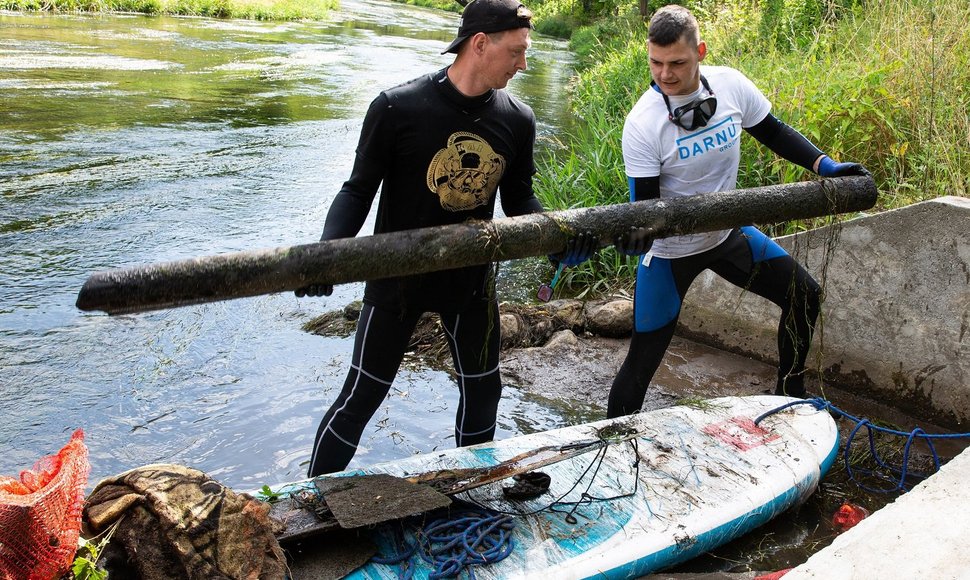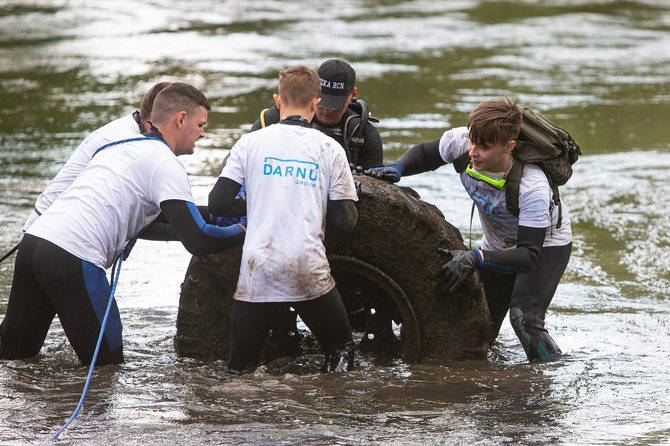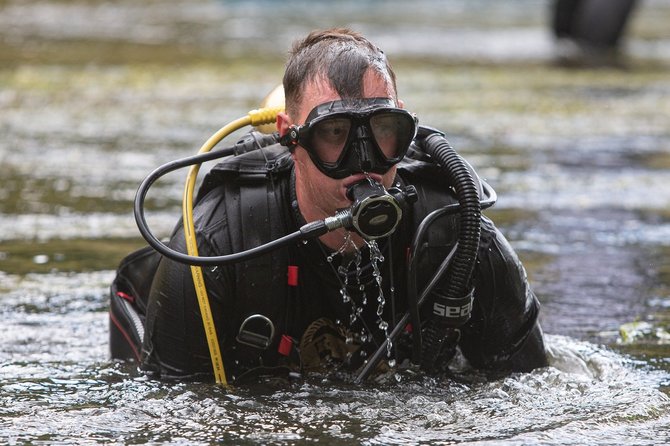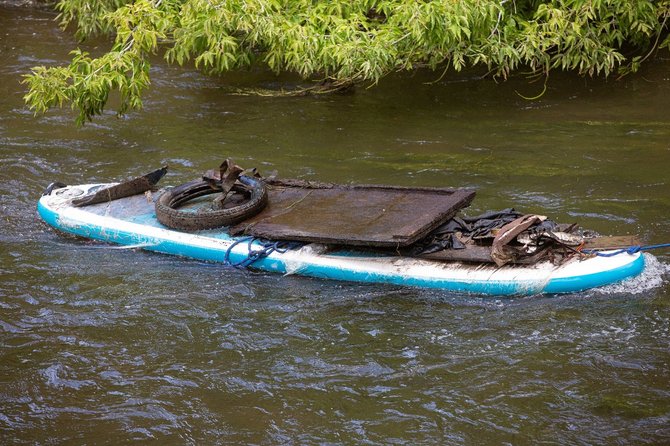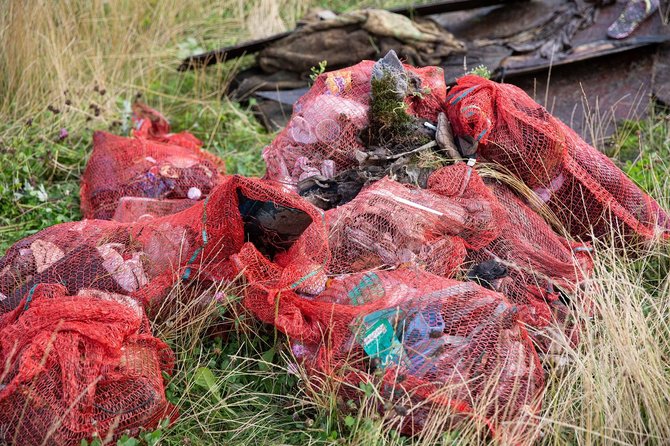“Nurturing surrounding nature has currently become one of the most important questions for societies around the world. We must particularly focus on it in the cities, as green spaces and bodies of water that are close to us every day serve to fundamentally change and improve the quality of our lives.
When evaluating the prospects for large cities’ emergence and development, it is becoming clear that successful growth is only possible when infrastructure and green zones are coordinated sustainably. People want to live close to nature, they feel happy next to it,” corporate affairs and marketing director at Darnu Group Akvilė Liaudanskienė states.
It took a team of ten divers seven hours to clean an almost ten-kilometre stretch of the riverbed and shoreline.
“The river was filled with vast quantities of clothes, and we extracted the whole bags of discarded clothing. Dives also found several wallets, one still containing documents. We will be handing it over to law enforcement,” Jevgenij Lebedev, the founder of a diving club from Trakai, which cleaned the Vilnelė, says.
According to the city municipality’s greenery section head Giedrė Čeponytė, clean water in the Vilnelė river is an excellent breeding ground for salmon.
“The aid of professional dives is definitely not frequent, and so we are very happy and greatly value such an event. Vilnia is a very strong flowing cold-water river, descending some 125 metres from its source to its endpoint. It isn’t deep, but it has a very strong flow, and has numerous inflowing streams. These conditions are suitable for types of salmon to breed, something we observe even now. The habits of Vilnius residents are changing for the better in terms of nature conservation, and we believe that in the future, biodiversity will only increase in this river if it is responsibly protected and valued,” Čeponytė states.
Vilnelė also has a symbolic meaning for Paupys – once upon a time, it was the river that granted the area its name.
Rising up in the capital out of an abandoned and publicly inaccessible area, the Paupys area stretches out alongside the banks of the Vilnelė, connected by bridges to the Užupis district. Arising within the Old Town’s territory, Paupys naturally also reflects its structure. Greenery, fountains and public spaces interlink in the area with cafes, restaurants, a cinema, a gourmet market, and even a business centre. Meanwhile, calm and enclosed inner yards intended for residential spaces are filled with flowers and natural plant life.
“Our goal is to cooperate in creating a harmonious city. Upon entering every new district, we seek to resolve its problems, and make use of its potential. This is why we are so focused on the Vilnia river – we want to help open it up to the people as much as possible,” Liaudanskienė states.
Based in Vilnius Old Town, spanning seven hectares, Paupys is one of Lithuania’s largest conversion projects, and has been included in the Vilnius city municipality’s strategic Architecture Park plan. In total, the Paupys area conversion project has received over 150 million euros in investment from Darnu Group.
